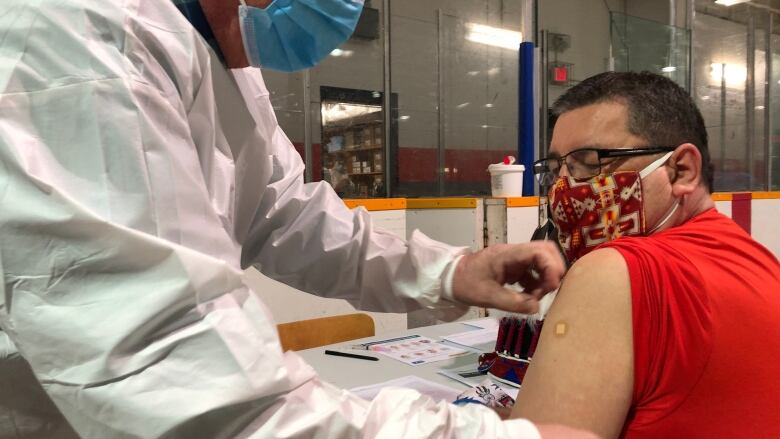COVID-19 in Indigenous communities: What you need to know
274,018 vaccine doses administered in First Nations and Inuit communities

As a third wave of the COVID-19 pandemic has begun in many parts of Canada, the number of active casescontinues on a downward trend in First Nations and Inuit communities.
To date, the rate of active reported cases of the virus in First Nations people living on-reserve is77 per cent of the rate for the general Canadian population, according to Indigenous Services Canada. As of April 12, the federal department reported666 active cases in First Nations.
New infections jumped significantly this week in Manitoba and Alberta with 300 and 113 new cases respectively on-reserve.
Since the pandemic began, there have been a total of 25,688 cases in First Nations communities. A total of 298 people have died from the virus, with 13 of those deaths beingreported in the last week. The total number of hospitalizations has risento 1,151. The number of First Nations people who have recovered from the disease is now at 24,724.
There arezero active cases reported in theNunavik region ofQuebecand in Nunavut.
Total cases in First Nations communities per region reported as of April 12:
- British Columbia: 2,897
- Alberta: 7,371
- Saskatchewan: 6,373
- Manitoba: 6,681
- Ontario: 1,697
- Quebec: 659
- Atlantic: 10
Vaccine distribution
As of April 9, a total of 274,018 vaccine doses, including 68,012 second doses, have been administered in 614 First Nations and Inuit communities.
Read more about the vaccination efforts taking place in Pimicikamak Cree Nation, Man., and by the Manitoba Metis Federation:
- Vaccination push pays off for Pimicikamak and other Manitoba First Nations
- Manitoba Metis Federation plans to give COVID-19 vaccines to 100 members by Saturday
What are the symptoms of COVID-19?
- New or worsening cough.
- Shortness of breath or difficulty breathing.
- Temperature equal to or over 38 C.
- Feeling feverish.
- Chills.
- Fatigue or weakness.
- Muscle or body aches.
- New loss of smell or taste.
- Headache.
- Gastrointestinal symptoms (abdominal pain, diarrhea, vomiting).
- Feeling very unwell.
If you think you may have COVID-19, please consult your local health department to book an appointment at a screening clinic.
CBC Indigenous is looking to hear from First Nations, Mtis, and Inuit who have contracted COVID-19 or lost a loved one to COVID-19. If you would like to share your story, please email us at indigenous@cbc.ca.












_(720p).jpg)


 OFFICIAL HD MUSIC VIDEO.jpg)
.jpg)



























































































